How is the UK stopping Channel crossings?published at 16:03 GMT 13 December 2023
The government says "stopping the boats" is a key political priority, but how is it going about it?
Read MoreThe government says "stopping the boats" is a key political priority, but how is it going about it?
Read MoreBristol Story Trails is showcasing the city's history using VR headsets and augmented reality tours.
Read MoreFor the latest updates, go to bbc.com/africalive
Angolans mourn 38-year ruler José Eduardo dos Santos, despite a family row over where he should be buried.
Read MoreFighting between political factions kills 32 people, including a young comedian, in Tripoli.
Read MoreBlack Tunisians tell the BBC about racism traumas, as an MP worries about advancement of black rights.
Read MoreMeeting the mentors who want to develop home-grown talent by teaching children robotics.
Read MoreVisiting restaurants or buying homes can be problems for headscarf wearers, BBC News Arabic finds.
Read MoreDr Tedros Ghebreyesus says he does not even know who in his family is dead or alive amid the war.
Read MoreFriday satire from BBC Focus on Africa radio
One of our fictional presidents – Olushambles – is not happy with the news that a healthy life expectancy in Africa is rising.
But Kibarkingmad takes issue.
Listen to the latest from the veteran leaders:
Healthy life expectancy in Africa has risen by almost 10 years, according to a WHO report
We'll be back on Monday morning
That's all for now from the BBC Africa Live team this week until Monday morning, when we'll be back at bbc.com/africalive.
There will be an automated news feed until then. You can also get the latest news from our website and listen to the Africa Today podcast.
Here's a reminder of Friday's wise words:
Quote MessageWe see when we cry."
A Yoruba proverb sent by Azuka Omonuwe in Lagos, Nigeria
Click here to send us your African proverbs.
And we leave you with this shot of camels being ridden by robotic jockeys at a race in Egypt, one of our favourites from this week's gallery of the best photographs from around the continent:
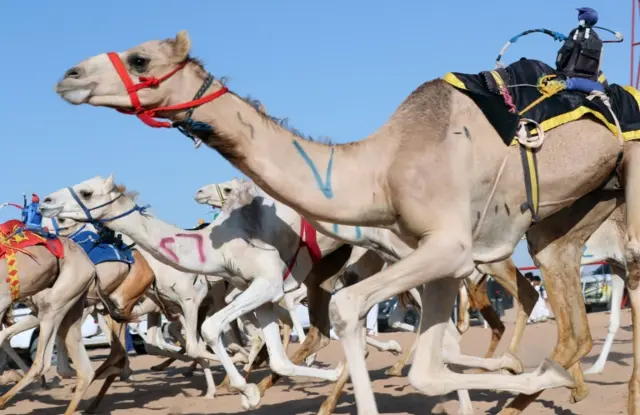 Image source, EPA
Image source, EPA DJ Edu
DJ Edu
Presenter of This Is Africa on BBC World Service
 Image source, Supplied by the artists
Image source, Supplied by the artistsTumelo Mabe and Tumelo Nedondwe share more than just their names
Amapiano is a very collaborative genre. Many of the biggest hits involve a string of names, and the scene has more than its fair share of creative duos.
One of these is MFR Souls.
Tumelo Nedondwe aka Maero, and Tumelo Mabe aka Force Reloaded, got together in 2012 - after Nedondwe’s brother noticed that not only did the two guys share a name, they also had very similar taste in music and were producing a similar sound:
Quote MessageWe used to love different sounds of music for example kwaito, deep house, tribal house, soulful house - we wanted to bring something different, so we decided to combine all the sounds."
The recipe worked, and MFR Souls have created some cool vibey bangers, not least Love You Forever:
Quote MessageWe just went to Kabza da Small’s studio, we created a beat, invited Sha Sha into the studio, and then Sha Sha did the magic."
Sha Sha is one of the queens of Amapiano, even though she’s originally from Zimbabwe, and her sultry, velvety vocals have graced several of the biggest hits.
"It was a big big song, it gave us our breakthrough in the industry and it was our real sound, they tell me.
The next hit, Amanikiniki, was inspired by a chat in the studio. The guys were talking about 'Blessers': "those 40-plus guys who like to spend money at grooves and buy expensive alcohols, so the song says 'where are the blessers?!'"
Apart from names and musical talent, the two Tumelos also share have very supportive parents.
"My mother used to encourage me, any time I was feeling down she’d be the one to encourage me, this is your dream, this is what you want, " says Tumelo Mabe.
"Whatever you are feeling take it out in the music, it will make you feel better and at the same time people will feel your pain or your joy through the music."
For Tumelo Nedondwe meanwhile, it's his dad who's been a great influence and continues to be a valued sounding board.
"He’s one person who understands me more than anyone, he can call me saying that he hears my song playing on the radio, he loves this new sound that I’m pushing, that’s the direction to take, because he has a lot of experience in music, and my mum also is very supportive.”
The duo are very appreciative of their success, saying: "t’s like a dream come true, imagine having the whole nation dancing to your creativity, it’s absolute perfectness."
You can hear MFR Souls on This is Africa, this Saturday on BBC World Service radio and partner stations across Africa, as well as online here: BBCworldservice.com/thisisafrica
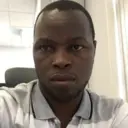 Peter Mwai
Peter Mwai
BBC Reality Check
Evidence from Kenyan anti-corruption campaigner, John Githongo, to support allegations by losing presidential candidate, Raila Odinga, that the election results system was hacked to rob him of victory has some noticeable similarities with a document submitted in 2017.
Five years ago, Mr Odinga also challenged the election result and the Supreme Court ordered a re-run.
Many of the pages in the 2017 document showing the logs - the technical word for a record of activities on a computer system - appear similar to those in the current document, sometimes with only the dates changed.
Screenshots in the affidavit filed by Mr Githongo and reported to be from a whistle-blower even have the year 2017 appearing among the dates meant to be for August this year.
There are also what seem to be simple errors for example, a time given as 16:54:30 pm in the 2017 document appears as 6:54:30 pm in the submission made this week, apparently missing the first digit.

The column on the left is from the 2022 document and the column on the right is from 2017
BBC Reality Check has discovered that the document posted in 2017 was from Makau Mutua, who is currently the spokesperson for Mr Odinga’s campaign secretariat.
Allow X content?
This article contains content provided by X. We ask for your permission before anything is loaded, as they may be using cookies and other technologies. You may want to read X’s cookie policy, external and privacy policy, external before accepting. To view this content choose ‘accept and continue’.
The BBC has contacted Mr Odinga’s office to ask for clarification.
He is challenging results declaring Deputy President William Ruto the winner of the election held earlier this month.
According to the electoral commission, Mr Odinga took 48.8% of the vote, compared to Mr Ruto's 50.5%.
 Richard Hamilton
Richard Hamilton
BBC World Service Newsroom
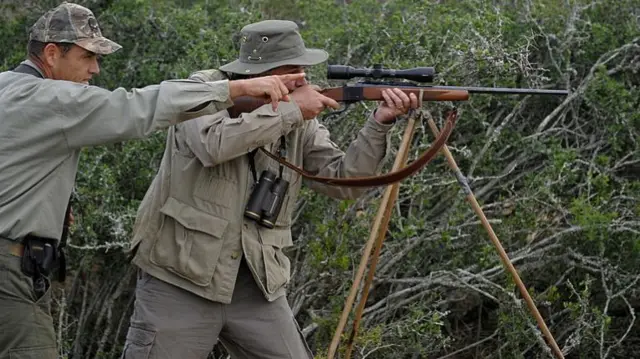 Image source, AFP
Image source, AFPSome tourists go to southern Africa and pay thousands of dollars to legally shoot animals such as lions and elephants
Some of the world’s largest travel companies have signed a statement urging the South African government to end trophy hunting.
The firms, which include Booking.com, Expedia and TripAdvisor, say they want South Africa’s tourism industry to be more wildlife friendly.
Two weeks ago a survey by the charity World Animal Protection revealed that more than 80% of international tourists - and more than 70% of South Africans - would like to see an end to trophy hunting there.
The government has been consulting the public about proposed new laws on conservation, which it says will end inhumane and harmful practices.
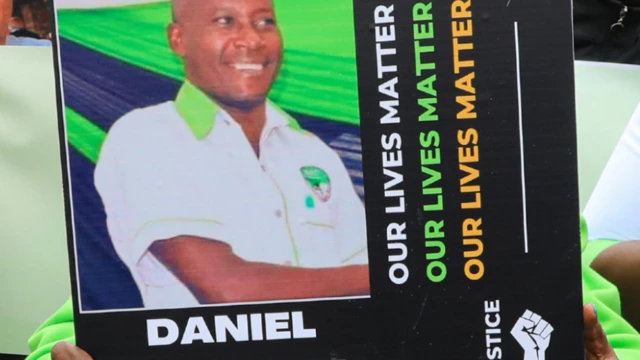 Image source, Getty Images
Image source, Getty ImagesThe electoral commission wants a full and speedy investigation into Daniel Musyoka's killing
Kenya’s electoral commission chief has paid tribute to a murdered poll official at his funeral, saying he paid “the ultimate price in the course of executing a key national duty”.
Wafula Chebukati was addressing those at the burial of Daniel Musyoka, who was the returning officer for the Embakasi East constituency in the capital, Kenya.
He went missing two days after the 9 August general election as Kenyans were awaiting the results of the vote.
Mr Musyoka’s tortured body was found the following week near Mt Kilimanjaro along Kenya’s southern border with Tanzania, some 200km (124 miles) from Nairobi.
Over the last few weeks, the electoral commission has been complaining about the intimidation and harassment of election officials.
Mr Chebukati told mourners at the gathering in Machakos County, Mr Musyoka’s rural home, that Kenya was not a failed state.
“We must refuse to believe that ours is a country where the rule of law can be suspended at will during the election period,” he said.
According to a series of tweets from the electoral commission, he urged the police and prosecuting authorities to put an end to crimes at general election by taking “immediate and conclusive action” against Mr Musyoka’s killers.
Allow X content?
This article contains content provided by X. We ask for your permission before anything is loaded, as they may be using cookies and other technologies. You may want to read X’s cookie policy, external and privacy policy, external before accepting. To view this content choose ‘accept and continue’.
In 2017, a senior election official was found dead just days before the country went to the polls.
Nearly complete results show the MPLA has won elections but Unita is likely to contest the results.
Read More Tamara Ebiwei
Tamara Ebiwei
BBC News Pidgin
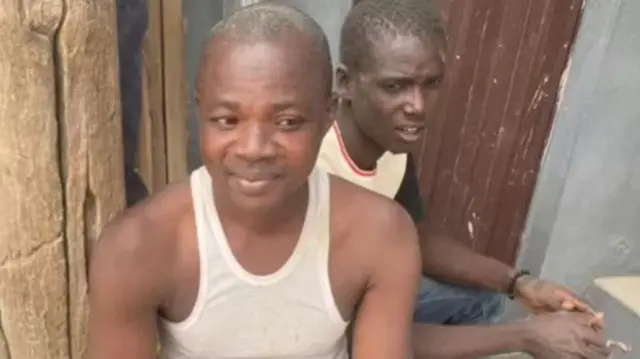
Afeez (in white singlet) managed to escape from the building when it collapsed
An operation is under way to rescue two construction workers trapped in a two-storey building that collapsed in Nigeria's capital, Abuja, on Friday, the authorities say.
Seven construction workers at the site in the suburb of Kubwa were sleeping in the building when it collapsed around midnight.
Five of the men have been pulled out and taken to hospital.
Umar Shua, an official with the Abuja Metropolitan Council, said approval had been given for a two-storey building but the contractor had added a third floor.
The contractor is now on the run.
One of the men pulled out of the rubble told BBC Pidgin he was sleeping when the building caved in.
“I heard a sound and opened my eyes to see the building collapsing. But I managed to escape through a hole,” said the man, who only gave his name as Afeez.
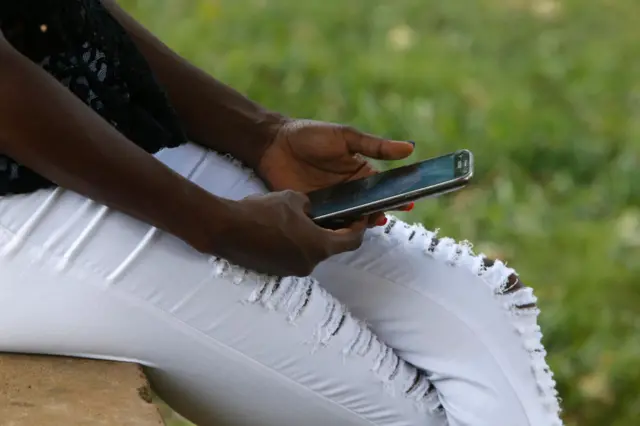 Image source, Getty Images
Image source, Getty ImagesPhone users can download and pay for ringtones
Ugandan musicians are up in arms over their share of benefits from the Caller Ring Back Tone (CRBT) scheme.
Purchasable ringtones, usually snatches of popular songs, generate a lot of money - up to $20m (£17m) in Uganda in 2019 - according to the Ugandan National Cultural Forum.
That money gets shared among the telecom companies, the government and the artists who create the music.
But the musicians feel cheated, saying their proportion of the profits is too small and the Ugandan Musicians Association has petitioned the government asking for a larger share.
"When it comes to tax collection, the taxman takes 50% of earnings," Phina Mugerwa, musician and secretary of the association, told BBC Focus on Africa radio.
"Telco companies take 35%. The artist, the owner of the work, gets 1.8%," she explained.
"We are appealing to the justice ministry that at least we should get 60%.
"You see musicians [have] big names but they don't have money."
Kalkidan Yibeltal
BBC News, Addis Ababa
Tigrayan forces in northern Ethiopia say the federal government has conducted fresh air strikes in the region’s capital, Mekelle.
Tigrai Television - affiliated with the Tigray People's Liberation Front (TPLF) - has showed images of a destroyed building and said civilians were killed in the strikes.
The allegations have not been independently verified.
But a statement released by the government’s communications office said people in Tigray should stay away from areas where the TPLF’s military equipment and training facilities were located.
It did not address the accusations about the air strikes, but it does seem to suggest that aerial attacks are imminent.
It would be a further escalation of the fighting which reignited earlier this week after five months of a ceasefire.
The UN World Food Programme (WFP) said its aid convoys were unable to reach Tigray, where the conflict that erupted in November 2020 has left millions in urgent need of food aid.
On Thursday, the head of the World Health Organization (WHO), Tedros Adhanom Ghebreyesus, said he had not been able to send money to members of his family in Tigray:
Tedros Ghebreyesus: 'I don't know even who is dead or who is alive'
 Shingai Nyoka
Shingai Nyoka
BBC News, Harare
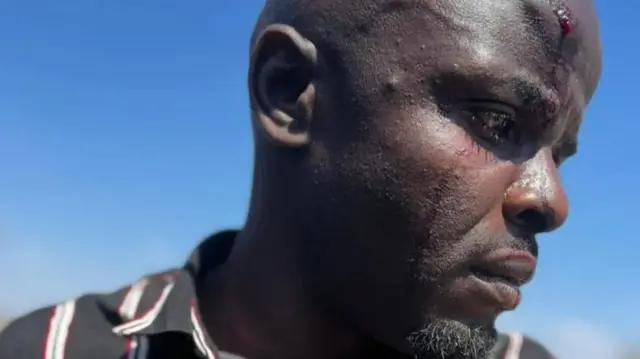 Image source, Tongai Mwenje
Image source, Tongai MwenjeTongai Mwenje says they were punched and kicked, and ordered to delete their photos and videos
The authorities in Zimbabwe have been urged to investigate the brutal assault of four independent journalists on Thursday.
The Committee for the Protection of Journalists (CPJ) said , externalthe group was attacked after they filmed a convoy of governing Zanu-PF party supporters, which had blockaded a road in the town of Gokwe west of the capital, Harare, ahead of an opposition rally.
About 10 people then emerged from vehicles emblazoned with the Zanu-PF logos and dragged the journalists from their car, beat them up, ordered them to delete their footage and stole the car keys.
One of the journalists, Tongai Mwenje who works for SportBrief, told the BBC they stomped on his head and body and punched him, causing him to lose a tooth.
He said his colleague Pellagia Mpurwa, from the online magazine Technomag, briefly lost consciousness and suffered a fractured leg.
The other journalists attacked were Technomag’s editor Toneo Rutsito and Chelsea Mashayaombe from the Zimbabwe Daily.
Allow X content?
This article contains content provided by X. We ask for your permission before anything is loaded, as they may be using cookies and other technologies. You may want to read X’s cookie policy, external and privacy policy, external before accepting. To view this content choose ‘accept and continue’.
The main opposition party, the Citizen’s Coalition for Change (CCC), said the convoy of its leader Nelson Chamisa was also chased and pelted with stones.
The CPJ said impunity for crimes against journalists remains high in Zimbabwe, where general elections are due to be held next year.
Previous polls have been marred by violence and voter intimidation.